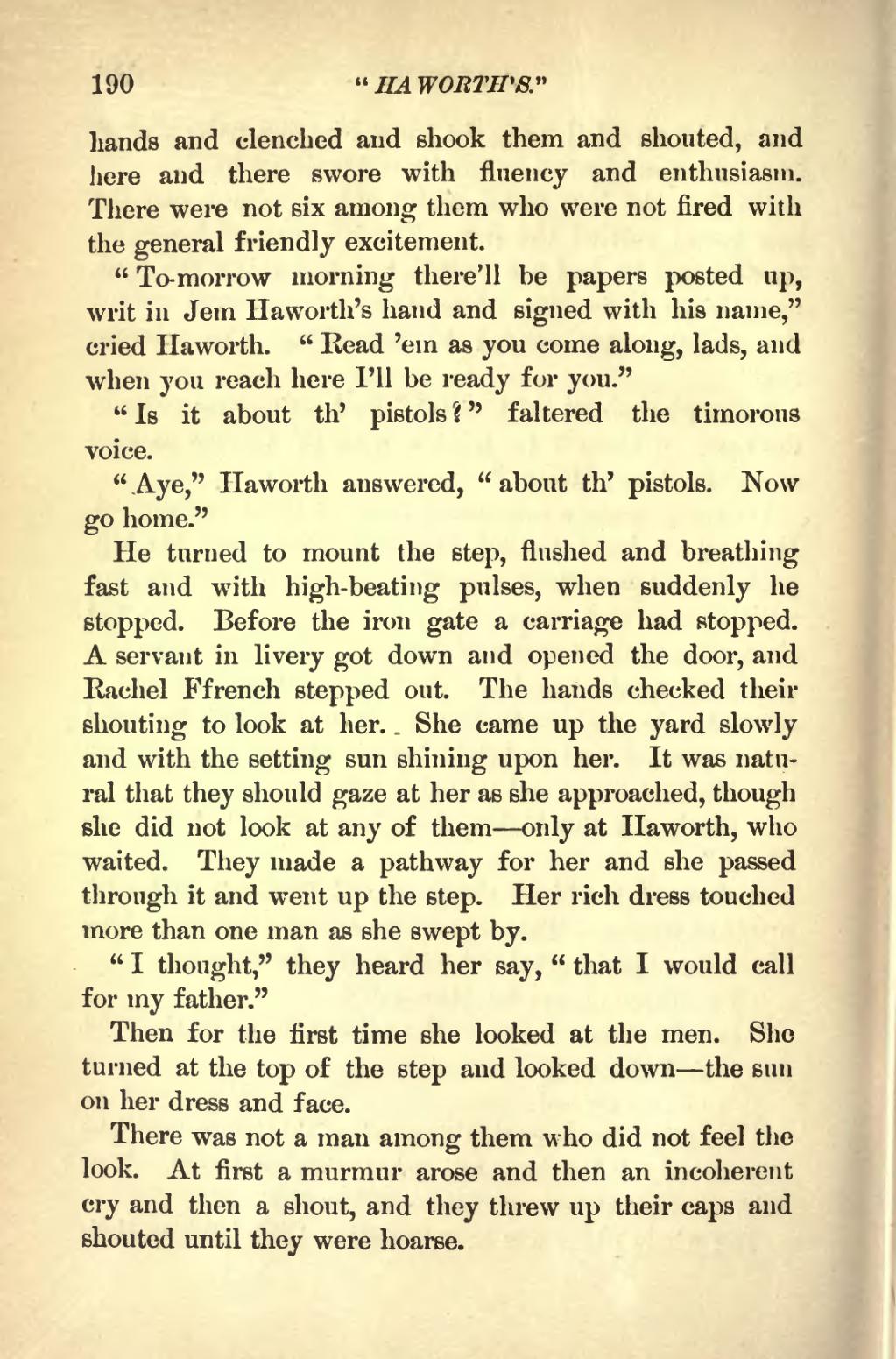hands and clenched and shook them and shouted, and here and there swore with fluency and enthusiasm. There were not six among them who were not fired with the general friendly excitement.
"To-morrow morning there'll be papers posted up, writ in Jem Haworth's hand and signed with his name," cried Haworth. "Read 'em as you come along, lads, and when you reach here I'll be ready for you."
"Is it about th' pistols?" faltered the timorous voice.
"Aye," Haworth answered, "about th' pistols. Now go home."
He turned to mount the step, flushed and breathing fast and with high-beating pulses, when suddenly he stopped. Before the iron gate a carriage had stopped. A servant in livery got down and opened the door, and Rachel Ffrench stepped out. The hands checked their shouting to look at her. She came up the yard slowly and with the setting sun shining upon her. It was natural that they should gaze at her as she approached, though she did not look at any of them—only at Haworth, who waited. They made a pathway for her and she passed through it and went up the step. Her rich dress touched more than one man as she swept by.
"I thought," they heard her say, "that I would call for my father."
Then for the first time she looked at the men. She turned at the top of the step and looked down—the sun on her dress and face.
There was not a man among them who did not feel the look. At first a murmur arose and then an incoherent cry and then a shout, and they threw up their caps and shouted until they were hoarse.

